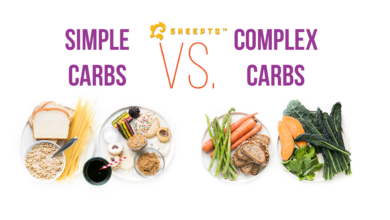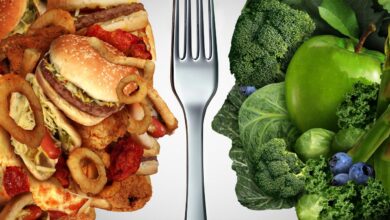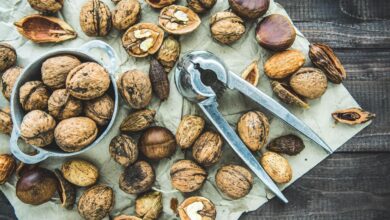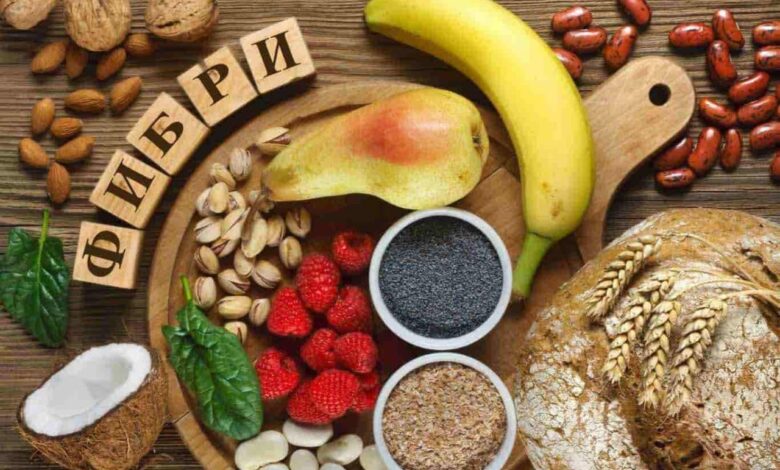
Are Fiber Supplements As Good As The Real Thing?
Are fiber supplements as good as the real thing? This question often arises when we’re looking for ways to boost our fiber intake and improve digestive health. While fiber supplements can be a convenient option, they don’t always replicate the full spectrum of benefits provided by dietary fiber.
Let’s delve into the world of fiber, exploring the differences between supplements and the real deal, and how to make informed choices for our gut health.
Dietary fiber, found naturally in plant-based foods, plays a crucial role in our digestive system. It’s not digested by our bodies, but it acts like a sponge, absorbing water and adding bulk to our stools, aiding in regular bowel movements.
Fiber also feeds the good bacteria in our gut, contributing to a healthy microbiome. However, many people struggle to meet their daily fiber needs through diet alone, leading them to consider supplements.
Understanding Fiber
Fiber is a type of carbohydrate that the human body cannot digest. It’s an essential nutrient that plays a vital role in maintaining digestive health, regulating blood sugar levels, and promoting overall well-being.
Types of Dietary Fiber
Dietary fiber is classified into two main categories: soluble and insoluble fiber.
- Soluble Fiber: Dissolves in water, forming a gel-like substance in the gut. This gel helps slow down the digestion process, regulating blood sugar levels and reducing cholesterol absorption.
- Insoluble Fiber: Does not dissolve in water. It adds bulk to stool, promoting regular bowel movements and preventing constipation.
While fiber supplements can be helpful, nothing beats the nutritional value of getting your fiber from whole foods. And who says healthy eating can’t be delicious? Check out 11 healthy pizzas under 400 calories for some inspiration. With a little creativity, you can enjoy a pizza that’s both satisfying and packed with fiber, proving that healthy choices can be both tasty and good for you.
Foods Rich in Fiber
Here’s a list of foods rich in soluble and insoluble fiber:
Foods Rich in Soluble Fiber
- Oats: Oats are a great source of soluble fiber, particularly beta-glucan, which has been linked to lower cholesterol levels and improved blood sugar control.
- Beans: Beans are packed with soluble fiber, contributing to a healthy digestive system and blood sugar regulation.
Let’s be real, fiber supplements are convenient, but they don’t quite match the nutritional punch of whole, fiber-rich foods. For a truly satisfying and slimming experience, consider incorporating plenty of high-fiber meals into your diet. Check out this awesome guide, High Fiber Meals for Weight Loss: A Guide to Feeling Full and Slim , for some seriously delicious inspiration.
You’ll find that the real deal, packed with all those vitamins and minerals, is far more effective for weight management than just popping a pill.
- Lentils: Lentils are another excellent source of soluble fiber, offering a wide range of nutrients, including protein and iron.
- Apples: Apples, particularly the skin, are rich in pectin, a type of soluble fiber that promotes gut health and may aid in weight management.
While fiber supplements can be helpful, they’re not a magic bullet. It’s crucial to focus on incorporating real, whole foods rich in fiber into your diet. Check out this article on 10 Simple Changes That Lead to Weight Loss for inspiration.
Making gradual, sustainable changes to your eating habits is key to achieving long-term success. Remember, fiber supplements are just a tool; real food is the foundation for a healthy, balanced diet.
- Berries: Berries, such as strawberries, blueberries, and raspberries, are packed with soluble fiber and antioxidants.
Foods Rich in Insoluble Fiber
- Whole Grains: Whole grains, such as brown rice, quinoa, and whole-wheat bread, are excellent sources of insoluble fiber, promoting regular bowel movements.
- Vegetables: Vegetables, especially leafy greens like spinach and kale, are rich in insoluble fiber, contributing to a healthy digestive system.
- Nuts and Seeds: Nuts and seeds, such as almonds, walnuts, and flaxseeds, are good sources of both soluble and insoluble fiber.
- Bran: Bran, the outer layer of grains, is particularly rich in insoluble fiber, adding bulk to stool and aiding digestion.
Recommended Daily Intake of Fiber
The recommended daily intake of fiber for adults is 25-38 grams. However, individual needs may vary based on factors such as age, activity level, and overall health.
It’s crucial to gradually increase fiber intake to avoid digestive discomfort. Starting with small amounts and gradually increasing over time is recommended.
Benefits of Fiber
Fiber, an essential nutrient found in plant-based foods, plays a crucial role in maintaining overall health and well-being. It’s a type of carbohydrate that our bodies cannot digest, but it provides numerous health benefits.
Fiber’s Role in Digestion
Fiber’s primary function is to aid in digestion. It adds bulk to stool, making it easier to pass through the digestive tract. This helps prevent constipation and promotes regular bowel movements. Fiber also acts as a prebiotic, feeding the beneficial bacteria in the gut, which contribute to a healthy microbiome.
Fiber and Blood Sugar Regulation
Fiber can help regulate blood sugar levels. Soluble fiber, found in oats, beans, and lentils, slows down the absorption of sugar into the bloodstream, preventing spikes and crashes in blood sugar. This is particularly beneficial for individuals with diabetes or those at risk of developing the condition.
Fiber and Cholesterol Levels
Fiber can help lower cholesterol levels. Soluble fiber binds to cholesterol in the digestive tract and helps remove it from the body. This can reduce the risk of heart disease, a leading cause of death worldwide.
Fiber and Weight Management, Are fiber supplements as good as the real thing
Fiber can contribute to weight management by promoting feelings of fullness and reducing calorie intake. When fiber absorbs water in the digestive tract, it expands, making you feel more satisfied and less likely to overeat. Additionally, fiber can slow down the absorption of nutrients, which helps regulate blood sugar levels and reduce cravings.
Fiber and Disease Prevention
Fiber has been linked to a reduced risk of several chronic diseases.
- Colon Cancer:A high-fiber diet can help protect against colon cancer by promoting regular bowel movements, reducing exposure to carcinogens, and improving the composition of gut bacteria.
- Heart Disease:As mentioned earlier, fiber can lower cholesterol levels, reducing the risk of heart disease.
- Type 2 Diabetes:Fiber’s ability to regulate blood sugar levels can help prevent or manage type 2 diabetes.
Fiber Supplements: Are Fiber Supplements As Good As The Real Thing
Fiber supplements are concentrated sources of fiber that can be added to your diet to increase your fiber intake. They are often used by people who struggle to get enough fiber from food alone.
Types of Fiber Supplements
Fiber supplements come in a variety of forms, each with its own unique properties and benefits. Some of the most common types include:
- Psyllium husk:Psyllium husk is a soluble fiber derived from the Plantago ovata plant. It absorbs water in the gut and forms a gel-like substance that can help to regulate bowel movements. Psyllium husk is often used to treat constipation and diarrhea.
- Methylcellulose:Methylcellulose is a synthetic fiber that is also soluble. It works similarly to psyllium husk by absorbing water and forming a gel. It is often used to treat constipation and irritable bowel syndrome (IBS).
- Wheat dextrin:Wheat dextrin is a soluble fiber derived from wheat. It is often used to lower cholesterol levels and improve blood sugar control.
Potential Benefits of Fiber Supplements
Fiber supplements can provide a number of potential health benefits, including:
- Improved digestion:Fiber adds bulk to stool, which can help to regulate bowel movements and prevent constipation. It can also help to reduce diarrhea by absorbing excess water in the gut.
- Lower cholesterol levels:Soluble fiber can bind to cholesterol in the gut and prevent it from being absorbed into the bloodstream. This can help to lower LDL (“bad”) cholesterol levels.
- Improved blood sugar control:Soluble fiber can slow down the absorption of sugar from the gut, which can help to stabilize blood sugar levels and reduce the risk of type 2 diabetes.
- Weight management:Fiber can help to promote feelings of fullness and reduce appetite, which can aid in weight loss.
Potential Drawbacks of Fiber Supplements
While fiber supplements can provide many health benefits, they can also have some potential drawbacks, including:
- Gastrointestinal discomfort:Taking too much fiber too quickly can cause gas, bloating, and diarrhea. It is important to start with a low dose and gradually increase your intake as tolerated.
- Interactions with medications:Fiber supplements can interfere with the absorption of some medications, such as antibiotics and blood thinners. It is important to talk to your doctor about any potential interactions before taking fiber supplements.
- Dehydration:Fiber supplements can absorb water in the gut, which can lead to dehydration if you do not drink enough fluids. It is important to stay hydrated when taking fiber supplements.
Absorption and Effectiveness of Fiber Supplements
Fiber supplements are not absorbed by the body in the same way as dietary fiber. Dietary fiber is broken down by bacteria in the gut, which produces short-chain fatty acids that have a number of health benefits. Fiber supplements, on the other hand, are not broken down by bacteria in the gut.
They are simply passed through the digestive system.
While fiber supplements can provide some of the same benefits as dietary fiber, they are not a substitute for eating a healthy diet that is rich in fruits, vegetables, and whole grains.
Considerations for Supplement Use
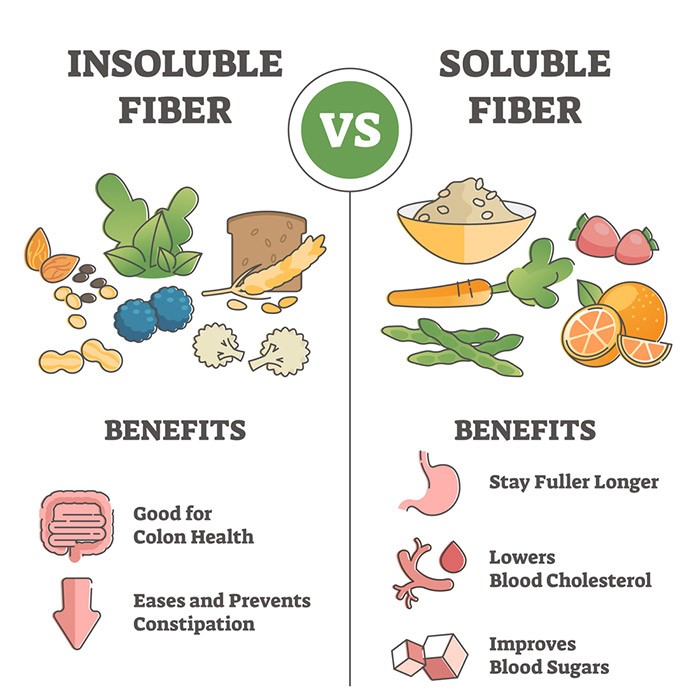
While fiber supplements can be helpful for increasing fiber intake, it’s essential to consider their potential benefits and drawbacks compared to dietary fiber. Understanding these factors can help you make informed decisions about whether fiber supplements are right for you.
Comparison of Fiber Supplements and Dietary Fiber
Dietary fiber and fiber supplements offer similar benefits for digestion and overall health. However, there are key differences to consider:
| Feature | Dietary Fiber | Fiber Supplements |
|---|---|---|
| Source | Fruits, vegetables, whole grains, legumes | Processed from plant sources, often concentrated |
| Nutrient Content | Contains a wide range of vitamins, minerals, and antioxidants | Primarily provides fiber, with limited other nutrients |
| Digestion | Digested more slowly, providing sustained energy and promoting satiety | May be digested more quickly, potentially leading to bloating or gas |
| Cost | Generally more affordable than supplements | Can be more expensive, especially for high-quality supplements |
| Taste and Texture | Varies depending on the source, often pleasant and enjoyable | May have a bland or slightly chalky taste, potentially affecting palatability |
Potential Side Effects of Fiber Supplements
Fiber supplements can cause gastrointestinal discomfort in some individuals, especially when taken in large doses or without sufficient water intake. Common side effects include:
- Bloating and Gas:Increased fiber intake can lead to gas production as bacteria in the gut ferment the fiber. This can cause bloating and flatulence, particularly in the initial stages of increasing fiber intake.
- Diarrhea:Excessive fiber intake can cause loose stools or diarrhea, especially if the body is not accustomed to high fiber levels. It’s crucial to start with small doses and gradually increase intake to allow the body to adjust.
- Constipation:While fiber supplements are typically used to relieve constipation, taking too much fiber too quickly can actually worsen constipation. This is because the fiber absorbs water in the gut, potentially leading to harder stools. It’s important to stay hydrated and increase fiber intake gradually.
Safe Incorporation of Fiber Supplements into a Diet
To minimize the risk of side effects and maximize the benefits of fiber supplements, it’s recommended to:
- Start with a low dose:Begin with a small amount of fiber supplement, such as 1-2 grams per day, and gradually increase the dosage over several days or weeks. This allows the body to adjust to the increased fiber intake.
- Drink plenty of water:Fiber absorbs water in the gut, so it’s essential to drink plenty of fluids throughout the day to prevent constipation and promote regular bowel movements. Aim for at least eight glasses of water daily.
- Listen to your body:Pay attention to how your body reacts to fiber supplements. If you experience any discomfort, reduce the dosage or stop taking the supplement and consult with a healthcare professional.
- Choose a reputable brand:Opt for fiber supplements from reputable manufacturers that use high-quality ingredients and have undergone third-party testing for purity and potency.
- Consult with a healthcare professional:It’s always a good idea to talk to your doctor or a registered dietitian before starting any new supplement, especially if you have any underlying health conditions.
Dietary Fiber vs. Supplements
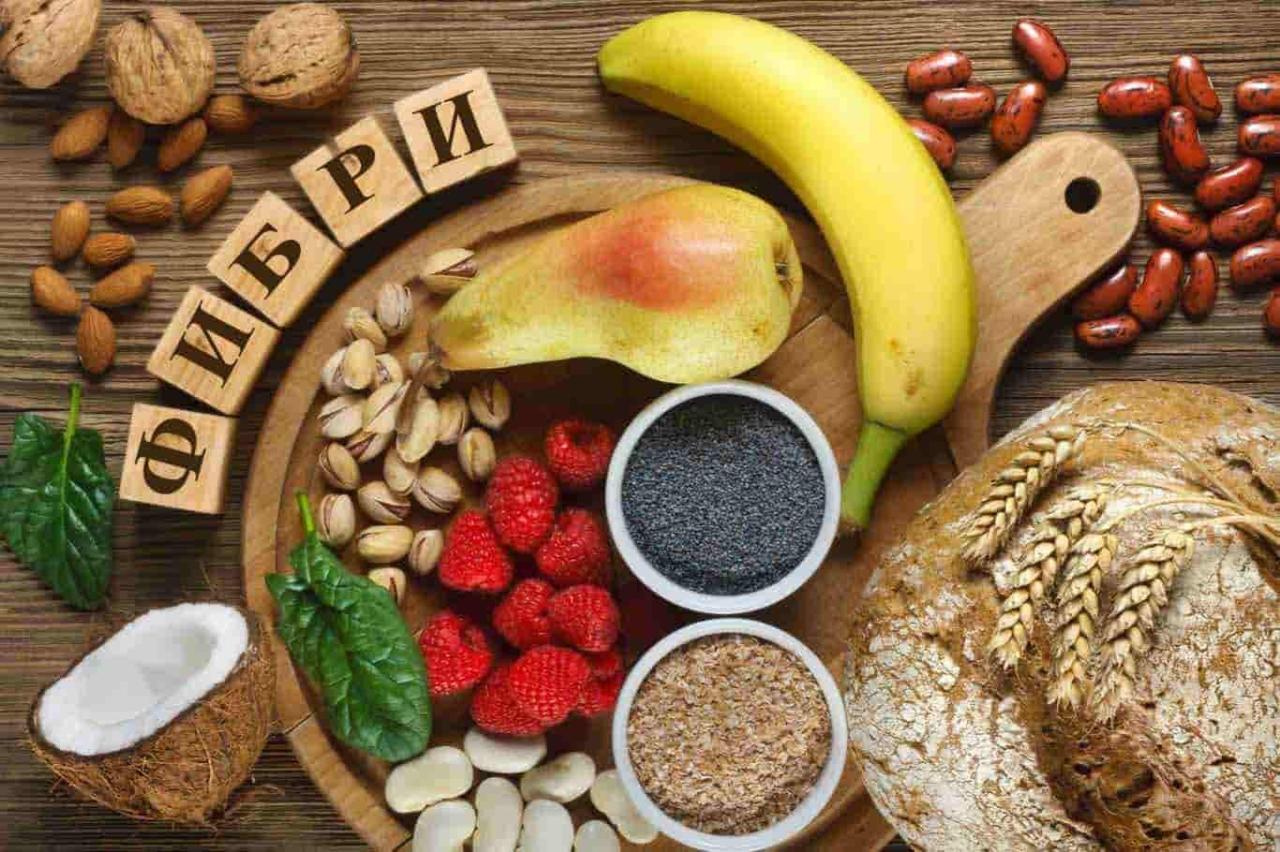
Fiber is an essential nutrient that plays a crucial role in maintaining digestive health, regulating blood sugar levels, and promoting overall well-being. While dietary fiber obtained from whole foods is considered the gold standard, fiber supplements have gained popularity as a convenient way to increase fiber intake.
However, it’s important to understand the differences between these two sources of fiber and their potential impact on your health.
Comparison of Nutritional Value
Dietary fiber and fiber supplements differ significantly in their nutritional profiles.
- Dietary fiberis found naturally in plant-based foods such as fruits, vegetables, legumes, whole grains, and nuts. It provides a wide range of nutrients, including vitamins, minerals, antioxidants, and prebiotics. These nutrients contribute to overall health and well-being.
- Fiber supplements, on the other hand, are concentrated sources of fiber derived from specific plant sources, such as psyllium husk, oat bran, or cellulose. While they provide a significant amount of fiber, they lack the diverse array of nutrients found in whole foods.
Bioavailability and Potential Side Effects
The way our bodies absorb and utilize fiber from different sources also varies.
| Characteristic | Dietary Fiber | Fiber Supplements |
|---|---|---|
| Bioavailability | More readily absorbed and utilized by the body due to the presence of other nutrients and compounds. | May be less readily absorbed and utilized due to the concentrated nature of the fiber. |
| Potential Side Effects | Generally well-tolerated, but excessive intake may lead to bloating, gas, or discomfort. | Can cause gastrointestinal discomfort, including bloating, gas, and diarrhea, especially if taken in high doses or without adequate hydration. |
Importance of a Balanced Diet
While fiber supplements can be a helpful addition to a diet, it’s crucial to prioritize whole foods as the primary source of fiber. A balanced diet rich in fruits, vegetables, legumes, whole grains, and nuts provides a diverse range of nutrients and fiber, promoting optimal health and well-being.
Wrap-Up
In conclusion, while fiber supplements can be a helpful tool for increasing fiber intake, they shouldn’t replace the benefits of a balanced diet rich in whole foods. Dietary fiber provides a diverse range of nutrients and promotes a healthy gut microbiome in ways that supplements simply cannot replicate.
Prioritizing a diet rich in fruits, vegetables, legumes, and whole grains is the most effective way to reap the full benefits of fiber. If you’re considering fiber supplements, consult with your healthcare provider to determine if they’re right for you and how to incorporate them safely into your diet.

